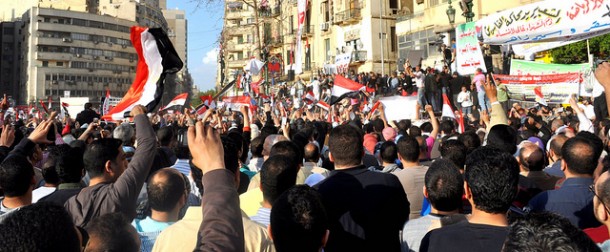[translations idioma=”ES” url=”https://archives.rgnn.org/2013/12/02/el-islamismo-y-sus-multiples-caras”]
GLOBAL. After several decades of growth and expansion, Islamism has become more and more complex, appearing before us rather like a succession of riddles. Every time we believe to have solved one riddle, we come across new ones. Islamism does not only show multiple faces, but also that these faces themselves are changing. As a result, Islamism can be interpreted in so many different ways, from those who discredit it as a mere reaction against modernity, to those who, in turn, contemplate it as a promising project of modernization, in accordance with the cultural traditions of Muslim societies. In this regard, it could be termed similar to the European Christian democracy, which finally reconciled a broad conservative multitude with liberal democracy, and the so-called values of the Enlightenment.
The discrepancies do not end here. If for some Islamism can be understood as a better or worse rebellion again Occidental hegemony, others do not tire of reminding us of the predisposition of many of its leaders to tolerate the imposition of the very same West. After all, the West has no better ally in the zone than the “ultra-islamic” regime of Saudi Arabia. In the same way, there are those who insist on the intense social welfare efforts of many Islamist movements and on the enormous popular support that these enjoy among the modest sectors. Hope is pinned on the fact that such movement may be able to promote greater social justice in a region that desperately needs it. But there are also those who, in contrast, emphasize the strong influence enjoyed by a new, pious bourgeoisie, concerned with mobilizing the most disadvantaged for their own benefit, as well as a wider acceptance of their leaders towards the rules of neoliberal globalization.
The revolutionary cycle in which the Arab world has been immersed for nearly three years has turned these all these contrasts sharper than ever. In large part, this has been the case because the happenings did not fully prove that any of the positions involved in this theoretical and political debate were correct. The Islamist movements did not lead the revolutions, but they knew how to rely on them in order to ascend to power. Yet once in the government, they acted clumsily and managed to spoil all the credit they had previously gained among the population. This paradox does not apply only to them. After years of discussing the sincerely of the Islamists’ democratic commitment, we confirm that the secular forces, which were not asked to provide such credentials, frequently enthusiastically support coups d’état and military assemblies. This has already been seen in Algeria in the 1990s.
Herein lies the root of the problem. The democratic construction concerns all social forces. If this construction fails, Islamists will have to assume their share of responsibility, but this is a shared responsibility. It is a mistake to focus exclusively on them. Until a culture of respect and agreement with others is not firmly rooted in society, minimum collective agreements will not be achieved. Without those agreements, the great pending task necessary to establish any democracy worthy of the name will not be able to be undertaken: the task of forming a broad social coalition against the monopolisation of power and wealth on behalf a reduced oligarchy.

